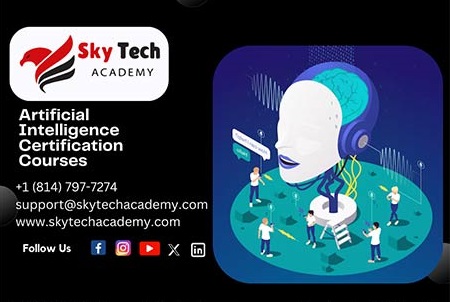Certified Artificial Intelligence Specialist Program
Artificial Intelligence (AI) Certification Training equips professionals with the knowledge and skills to excel in the rapidly growing field of AI. This comprehensive program covers essential topics, including machine learning, deep learning, neural networks, natural language processing (NLP), and computer vision. Participants gain hands-on experience through practical projects, real-world case studies, and industry-relevant tools like Python, TensorFlow, and Keras. The training is designed for aspiring AI professionals, data scientists, software engineers, and anyone interested in leveraging AI technologies to drive innovation and solve complex problems. By completing this certification, learners demonstrate proficiency in AI concepts, algorithms, and applications, boosting their career prospects across industries such as healthcare, finance, retail, and technology.





